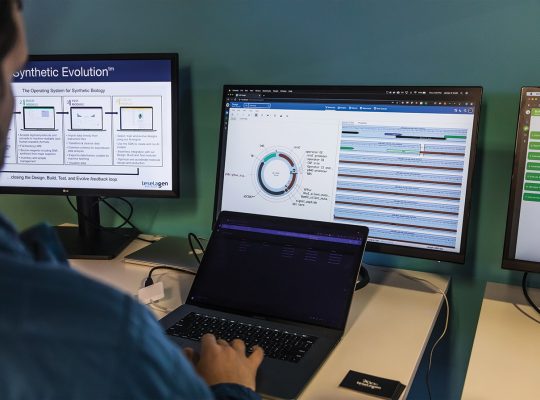The digitalization of bioprocessing technology isn’t happening for its own sake, but to ensure that outsourced manufacturing tasks, however diverse, will be part of highly integrated processes.
Contract development and manufacturing organizations (CDMOs) are driven to adopt new production technology because they need to cater to pharmaceutical firms that are interested in focusing on research and marketing. And today, pharmaceutical firms are, if anything, more interested in outsourcing production tasks than they ever were, given the increasing number of small- and medium-sized firms that lack manufacturing capabilities of their own. It may sound as though CDMOs are spoiled for opportunity. However, CDMOs are anxious to distinguish themselves from their competitors and to offer multiple services to prospective customers, who often prefer to deal with as few service providers as possible. Both these considerations heighten the interest CDMOs have in acquiring novel capabilities.
At present, the capability most sought after by CDMOs is data-driven manufacturing, that is, the collection and processing of real-time data at each processing step to make manufacturing more efficient overall. Data-driven manufacturing elements include sensor technologies, advanced analytics, robotics, and even “digital twins,” virtual versions of physical systems that may be used to optimize processing. Such elements are central to the Industry 4.0 approach, which involves the use of “smart” and autonomous systems to enhance the computer control of manufacturing. The Industry 4.0 approach is less common in the pharmaceutical industry than in industries with more consistent data formats and less demanding regulatory environments. Nonetheless, CDMOs are highly motivated to adopt the Industry 4.0 approach in the production of high-quality medicines such as biopharmaceuticals.
Normalizing digitalization
In time, all CDMOs are likely to go digital, comments Synthace’s Peter Crane. He believes that customer demand for high-quality products and information will cause data-driven manufacturing to become the norm. “Industry 4.0 isn’t a differentiator per se, but it’s a lever that allows an organization to deliver high-quality products more quickly, even with more complex biological systems,” he points out. “The buzzwords may get people excited at conferences, but in this industry, it’s all about being the trusted CDMO partner and delivering the best results to clients/patients. “I expect that in the short term, companies will use these capabilities to differentiate themselves on the basis of the results the capabilities can provide. As more CDMOs digitalize, these capabilities will become commonplace—a ‘must have,’ not a ‘nice to have’—for many of these organizations.”
AI to Screen, Characterize, and Optimize Drug and Vaccine Candidates
TeselaGen Biotechnology has developed a modular AI-driven software platform for designing, building, and optimizing biological products, according to CEO and co-founder Eduardo Abeliuk, PhD. TeselaGen’s Discover module implements different machine learning and Bayesian optimization techniques to efficiently evolve genetic constructs in search of an optimal design, he explains, adding that the company has applied an arsenal of bioinformatic tools to achieve its goals.
